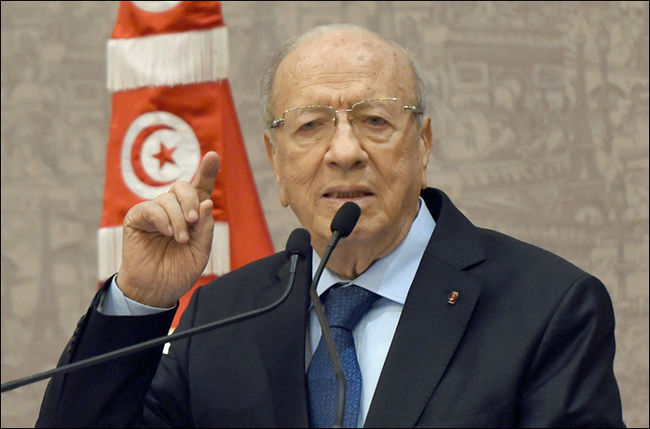By Mona Yahia in Tunis and
By Siham Ali in Rabat for Magharebia
![Tunisian voters expect their new president, Beji Caid Essebsi, to address jobs, security and the cost of living. [AFP/Fethi Belaid]](http://www.moroccotomorrow.org/wp-content/uploads/2015/01/Beji-300x198.jpg)
Tunisian voters expect their new president, Beji Caid Essebsi, to address jobs, security and the cost of living.
[AFP/Fethi Belaid]
With Tunisia’s newly elected president sworn in, citizens are now waiting to see what the next government has in store, from jobs to fighting terrorism.
The new administration will be in a comfortable position to complete its project because the head of state, the parliamentary majority and the prime minister will be from the same party, according to observers.
But the compensation fund has caused Tunisia’s budget deficit to approach 5 billion dinars, and GDP growth will not exceed three per cent during 2015.
The outgoing cabinet declared earlier that adjustments needed to be made to the subsidy system, which is plaguing the state budget. Caid Essebsi rejected this option, saying that Tunisia could not abandon subsidies at the present time and that this should be done gradually.
According to the Tunisian General Labour Union, the next government must increase the purchasing power of citizens and carry out the fight against terrorism.
“The cost of living has risen and we are no longer able to endure this. We are expecting a lot from this government,” commented Zina Dhawadi, a retiree.
In Morocco, expectations for 2015 are also high.
For youth, jobs top the wish list. Sara Badri, a 26-year-old accountant, called on authorities to unveil the long-awaited employment strategy in order to address the endless expectations of graduates.
“I struggled for three years to find a job, and I know other people who have been out of work for years,” she told Magharebia.
Chakiri Ahmed, a 28-year-old with a BA in economics, has been unable to find a steady job for the past five years. He called for action in 2015.
“The government must build this year on measures to support skilled young people and overcome unemployment, by fitting them into the private sector or engaging in self-employment initiatives,” he said.
Many Moroccans expressed the desire for better purchasing power.
Tafii Salim, a 42-year-old civil servant, said that while the finance bill had not announced key measures for 2015, there was still hope that social dialogue with trade unions would lead to gains for employees.
He said he hoped the government would assume its mission in terms of price control in the market to avoid speculation.
Security is also high on the agenda for citizens. Hamza Sharifi, a teacher, remarked that stability and security were two advantages of Morocco.
“Nothing is set in stone,” teacher Hamza Sharifi told Magharebia. “Although we are safe in Morocco, thanks to the vigilance of the security services, we still must stay alert. Security tops expectations as it is essential to live in peace,” he said.
Hamida Baali, a student, agreed, noting, “Without security, we cannot hope for any wish.”
The number of terrorist cells dismantled in recent years was cause for concern. “Terrorism can strike at any time despite security vigilance,” the student said.
“I hope the government will pay more attention to the causes of extremism, to prevent young people from being indoctrinated easily by obscurantist groups,” she added.







